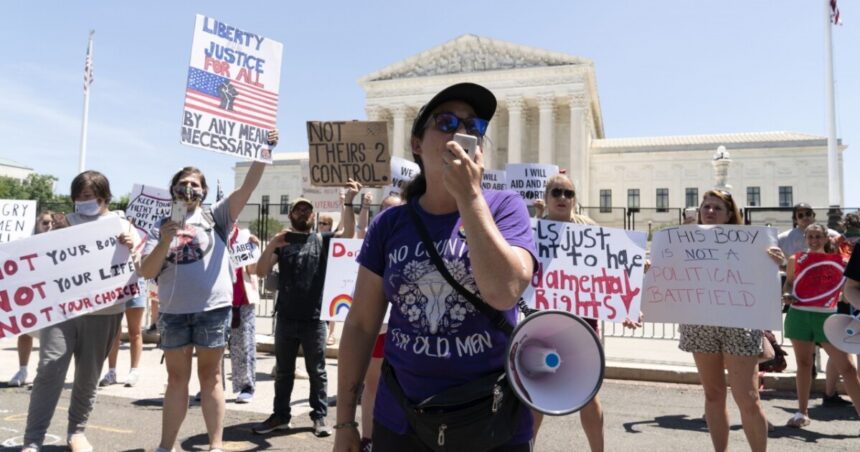Two years after the Supreme Court decision that overturned Roe v. Wade, the national landscape regarding abortion access is inconsistent and uncertain, with the upcoming election looming large.
Several states are considering ballot measures that, if approved, would amend state constitutions to protect abortion access as a fundamental right. While Pennsylvania and Nebraska are working on measures to restrict or ban abortion access.
“The Dobbs decision marked a new chapter in American politics,” stated Rachel O’Leary Carmona, the executive director of Women’s March. “It has not only impacted women, but also democracy itself.”
The Center for Reproductive Rights has been monitoring changes to state laws since the Dobbs decision. They found that 17 states currently have strict bans on abortion, while another eight states restrict it before viability, which is often before many women realize they are pregnant.
On the flip side, 22 states have expanded or safeguarded abortion access since the Dobbs ruling. In 17 states, providers can offer care to patients from out of state.
This patchwork of laws creates uncertainty for pregnant individuals. Kate Cox, who took legal action in Texas over her nonviable pregnancy, is now pregnant again and feels she must prioritize contacting her lawyer before her doctor if she faces an emergency.
During the upcoming fall, four states have initiatives on the ballot to enshrine the right to abortion in their state constitution, with another six states collecting signatures to do the same.
Some of these initiatives are led by citizens, utilizing the ballot initiative process to address key issues. However, this process is not available in half of the U.S. states and has faced criticism for potentially bypassing elected officials.
Attempts to introduce citizen initiatives in states without the process can be challenging. For example, in West Virginia and Tennessee, efforts to implement such initiatives faced roadblocks from the legislature.





